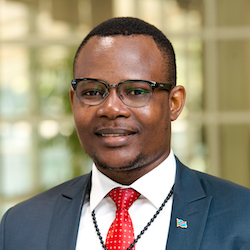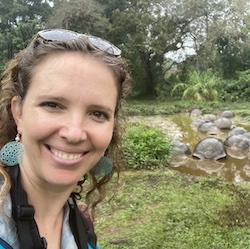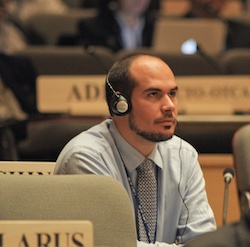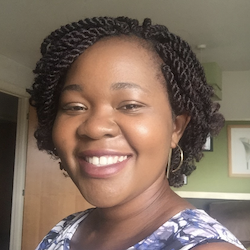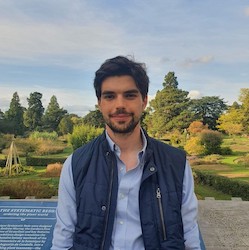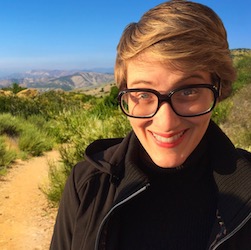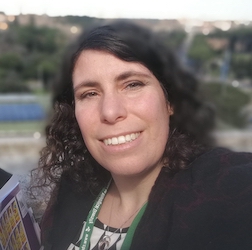The UCCLAN Policy Committee was formed in response to the core component of the UCCLAN Strategy 2021-2023, which aims to advance global policy and law for the future of biodiversity and the environment (Goal 1).
The UCCLAN Policy Committee provides overall guidance on the development and approval of UCCLAN member-led policy statements. The committee’s mandate is to initiate a quality assessment of the policy positions, briefs, actions, and petitions for which members seek UCCLAN endorsement in compliance with UCCLAN Strategy and Cambridge University policies.
Policy improvements and formulations cover instruments of multilateral agreements or institutions such as the Rio Conventions, IPBES, CMS, WTO, Ramsar, FAO IPCC, etc. and regional and national policy and legislation with an impact on biodiversity globally that often manifests locally.
Furthermore, the committee supports official UCCLAN member representation at global policy-making events. It ensures a timely review of policy outputs and accountability processes that provides UCCLAN representatives with the support and flexibility to participate in international policy-making events and negotiations.
The Policy committee is made up of a set of UCCLAN members with a minimum of three years of extensive experience in policy formulation including writing and reviewing policy statements.
The Policy Committee comprises of:
Fabrice Inkonkoy (2020-21), Democratic Republic of the CongoFabrice Inkonkoy is a conservationist and sustainability specialist with a keen interest in biodiversity conservation, natural climate solutions and IPLCs sustainable development. He holds a master’s degree in Conservation Leadership from the University of Cambridge, a Professional Diploma in Environmental Policy and Climate Change from the University of California Davis and a bachelor's degree in natural resources management from the University of Kinshasa. Over the last twelve years, he has worked for WWF, supporting conservation efforts and environmental policy in the Democratic Republic of Congo. He contributed to enhancing protected areas management effectiveness and reducing poaching through the capacity building of park rangers and local communities. In his previous role as Indigenous People and Local Community Advisor (IPLC), he contributed to mainstreaming IPLC’s development into the natural resource and forest governance agenda in DR Congo. Fabrice and team have conducted a study that came up with a community-based SDGs monitoring approach, nominated by the UN-DESA as one of the SDGs implementation best practices. Recently, Fabrice has worked with the World Bank in the Environmental and Social Risk management department supporting the design and review of key environmental and social safeguards instruments for infrastructure development projects. Fabrice's areas of expertise include sustainable forest management, forest policy, conservation strategic planning; E&S risk management; GIS; corporate sustainability transparency and reporting. He is currently working for ZSL as the Sustainable Business Specialist for Africa.
|
|
Lucia Norris (2016-17), EcuadorLucia Norris is Programme and Policy Manager at the Galapagos Conservation Trust. Lucia has been involved in sustainable development and conservation since 2009 and holds a Masters in Conservation Leadership from Cambridge University. When she worked for the Quito City Council, she advised in the design of the first draft law to reduce single use plastic bags in Quito. While she was working for WWF in Galapagos, this draft law was used as an input to design the ordinance to prohibit t-shirt type plastic bags in Santa Cruz Island. She also co implemented the feminist group "El Parto Es Nuestro '' in Ecuador, which promoted the inclusion of gynaecological-obstetric violence in Ecuadors Law against gender violence. Besides, she worked for Fundación Futuro Latinoamericano, and Fundación Jocotoco, where she is now a board member, and is a Co-founder of the Green Recovery Collaborative (greenrecovery.world) . In her current role, one of her goals is to contribute to connecting community wisdom and science with public policy and innovative solutions to advance the SDGs in Galapagos and the inclusive Circular Economy at local, national, and international levels. |
|
Jorge L. Ventocilla (2012-13), PanamaJorge Ventocilla has over a decade of environmental policy experience, with a focus on biodiversity and climate change policy. He is particularly interested on topics related to science-policy interface, natural resource governance, and sustainability. Jorge’s regional work experience covers Latin America and the Caribbean, Africa, the Caucasus, and Europe. He has worked for TRAFFIC International, IUCN, the Belgian federal government, the Flemish government, the Walloon government, the Ministry of Forestry, Fisheries & Sustainable Development of Belize, the European Commission, the UN Convention on Biological Diversity, the UN Environment Management Group, the Overseas Countries and Territories Association, and the Conference of Peripheral Maritime Regions of Europe. Thanks to Jorge’s multidisciplinary background and experience, he is quick to connect the dots, link disciplines, actors and sectors, identify key issues and stakeholders, and assess implications. Along with a sense for ethics, these are skills and experience that Jorge brings to the UCCLAN Policy Committee. |
|
Monipher Musasa (2015-16), MalawiMonipher has joined the Law Division as a Programme Management Officer (P3) from 27th March 2023, working with the ACP MEAs 3 Programme on capacity building related to environmental agreements in Africa, Caribbean, and the Pacific region, where her roles will mainly be on communication and providing programme management support. Monipher’s background is in biodiversity conservation with over ten years’ experience working directly with Government and Non-Governmental Organisations on conservation issues specifically on MEAs implementation both at national and international level. She holds a Master of Philosophy in Conservation Leadership from University of Cambridge in United Kingdom with special interests on integration of conservation and development, local community property rights to land and natural resources (ownership, control, access, and use), ecosystem valuations, economic and social incentives for conservation for the poor and vulnerable sections of society. Prior to joining UNEP, Monipher worked as an International Policy Advisor at the International Fund for Animal Welfare (IFAW) as well as the African Wildlife Foundation among other international organisations in the areas of environmental policy and conservation leadership. Monipher has also worked as a National Focal Point and negotiator for the Convention on Biological Diversity for the Government of Malawi. Monipher is a Malawian national and enjoys traveling and cooking. |
|
Nathan Mesnildrey (2021-22), FranceNathan Mesnildrey is French and works on global environmental and climate change issues. He is currently working in Bonn, Germany, for an international coalition of countries and international organisations which supports countries to set up national frameworks to further climate action. Nathan has worked on global and domestic policy questions relating to environmental change for six years, most of this time spent working with Western African and Sahelian countries. His expertise is on the integration of environmental issues into national planning processes.
|
|
Rosalind Helfand (2018-19), USARosalind Helfand is the Founder of PAJE, an independent consultancy formed to collaborate with governments, NGOs, and communities at the local, national, and global levels to create and implement innovative, intersectional environmental and social policies and programs. Currently, Rosalind consults for UN Women as the Thematic Lead for their Action Coalition on Feminist Action for Climate Justice. In this role, she convenes a global multi-stakeholder partnership of over 170 organizations, including over a dozen national governments, and works with them on their plans to integrate gender equality into environmental policies, programs, and advocacy. She is also the Co-founder of the California Global Biodiversity Working Group, which is a coalition of dozens of environmental organizations across California that advocate to connect local and global environmental policymaking. In partnership with elected and appointed state officials, the Working Group led a delegation of over 50 people to the UNCBD COP15 after successfully advocating for California to become a CBD Observer. Rosalind is also a Co-founder of the UCCLAN member led Global Green Recovery Collaborative, which is a new platform launched to enable partnerships for conservation action. With UCCLAN, Rosalind has served as a UNCBD delegation member and contributed to policy inputs since 2019. She is a co-author of two UCCLAN pieces, "A Call for Collective Crisis Leadership" and "The Influx of Plastic Waste by International Fossil Fuel and Chemicals Companies into Africa." She also served as a peer reviewer for the UN report on "The Importance of Inclusive Infrastructure for Climate Action." Rosalind serves on the City of Los Angeles's Biodiversity Expert Council and has served as an expert reviewer for the development of the IPBES Nexus and Transformative Change assessments, and the IPCC report on climate change as a "threat to human wellbeing and the health of our planet." Rosalind has worked both in local government, where she got her start drafting legislation, and with non-profits, where she has contributed to policy development and advocacy in the fields of conservation, reproductive health care, and environmental and social justice. Rosalind holds a BA in Environmental Studies from UC Santa Cruz and an MPhil in Conservation Leadership from the University of Cambridge. |
|
Noa Steiner (2016-17), IsrealNoa Steiner is a biodiversity policy and natural resource management specialist, currently studying the interactions of nature conservation, food security, political economy and behavioural economics. Noa holds an Msc. in Desert Ecology, an MPhil in Conservation Leadership from the University of Cambridge and is currently a PhD candidate in the political agriculture department in the University of Kiel, Germany. |

